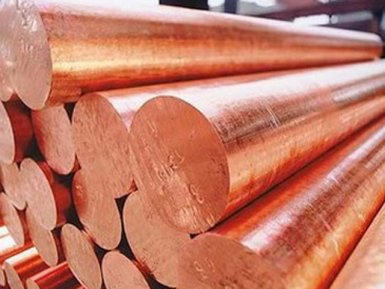The use of bronze is the manufacture of a sliding bearing

Are you interested in using bronze for making bearings from the supplier company AvecGlob? Here you will find the necessary information on this topic.
General information
For the production of bearings the following types of bronze are used: tin, lead, aluminum and beryllium. As a rule, in these alloys, a higher lead content contributes to compatibility with the soft alloy shafts and reduces friction in low-temperature alloys, as well as lubrication conditions (eg start-up) with a slight decrease in wear resistance. Thus, bronze is preferred when compatibility outweighs the effect from lower mechanical properties. Other alloying elements are added to bronze for making alloys of higher carrying capacity, strength, hardness, wear resistance and fatigue strength.
Compared with softer babbits, bronze bearings provide greater load capacity, better high temperature performance, greater wear resistance, but also lower blocking resistance.
Further, applications of various types of bronzes as applied to the production of bearings
Supplier — AvekGlob Company — offers to purchase assortment of various bronze alloys of domestic and foreign brands. Products can be bought at a price formed on the basis of European and world standards. Implementation is possible in bulk and retail, for regular customers, a flexible system of discounts operates.
Lead-free bronze
The tin content of 4−10% in lead bronze increases strength, maximum load capacity, fatigue resistance and hardness above what is available with simple copper leads. As a replacement for tin, zinc and nickel (or nickel or silver) are sometimes used. They are often added to improve corrosion resistance and viscosity. Lead-free bronzes have better compatibility than tin ones, as lead spheroids lubricate the bearing surface in conditions of inadequate lubrication. These alloys are commonly used in machines, household appliances, agricultural machinery and pumps. However, alloys with a lead content of more than 20% become difficult to access because their casting properties deteriorate.
Tin bronze
These alloys have a high hardness, which requires reliable lubrication, good alignment and a minimum shaft hardness of 300 to 400 Brinell. They are used in highly loaded low-speed applications such as bearings, trunnions, toothed sleeves for SUVs, rolling bearings. Tin bronze is also used for making bearings in internal combustion engines (connecting rod bearings), guide valves and starters.
Cast bronze bearings provide good compatibility, casting, easy handling, low cost, good structural properties and high load capacity.
Aluminum bronze
High-strength bronze is obtained using aluminum, iron, manganese, silicon and nickel as alloying elements. Such bearings have excellent fatigue strength and wear resistance. Aluminum bronze retains high strength at high temperatures. Since aluminum bronze has poor compatibility, embedability and compatibility, it is best suited for heavy-duty low-speed applications with abundant grease. The main application is airplane landing gear bearings.
Beryllium bronze
The addition of about 1.8% beryllium and about 0.2% cobalt to bronze provides the alloy with a strength comparable to many steels. High strength, hardness, and thermal conductivity of the alloy promote its use in bearings with high loads, especially where reliability is required for accidental overloads, shocks, high temperatures or extreme lubrication conditions. These alloys are used in electrically conductive applications and are often recommended for aircraft sliding surfaces.
Supplier — AvekGlob Company — offers various types of rolled and cast bronze from domestic and foreign production. The products are offered at affordable prices from the manufacturer. The supplier guarantees the timely delivery of products to any address specified by the consumer.


